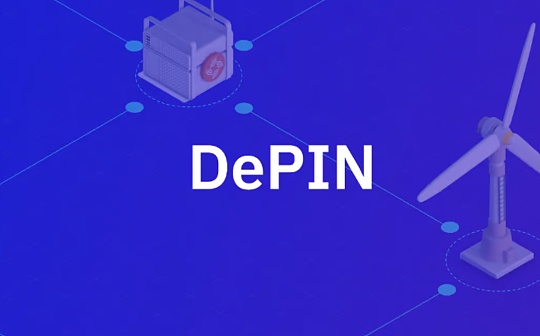Author: Bistroo Source: medium Translation: Shan Oppa, Golden Finance
In an era characterized by digital transformation and decentralization, Decentralized Physical Infrastructure Network (DePIN) is becoming a breakthrough innovation that is expected to reshape transportation, telecommunications, water supply and other critical infrastructure sectors. This article explores the exciting possibilities and potential challenges facing DePIN, and their implications for policy development, regulation and governance.
The Promise of DePIN: Future Possibilities and Impact
As DePIN continues to evolve and Gaining traction, its potential impact across industries is undoubtedly transformative.
In the field of transportation, DePIN is expected to revolutionize transportation networks. Decentralized electric vehicle (EV) charging stations, automated vehicle management and efficient traffic flow control are just a few of the possibilities. Imagine seamless interconnection between vehicles, infrastructure and urban planning.
In the field of telecommunications, DePIN can usher in a new era. Mesh networks with decentralized nodes can enhance connectivity in remote areas, while blockchain-based data security ensures the privacy and integrity of communications.
For water management, DePIN can modernize operations. Decentralized sensors and smart grids can monitor water quality, detect leaks and optimize distribution. This not only saves resources but also ensures reliable access to clean water.
In the energy field, the potential of DePIN is huge. Decentralized energy grids powered by renewables can provide a resilient and sustainable electricity supply, reducing reliance on centralized fossil fuel systems.
Challenges and Overcoming Strategies for Adopting DePIN
While the future of DePIN is promising, There are some challenges.
Security issues are crucial. Like any digital infrastructure, DePIN faces security threats. Ensuring strong cybersecurity measures, including encryption and secure authentication, is critical to preventing data breaches and network breaches.
Interoperability is another challenge. Different DePIN networks may need to interact, requiring standardized protocols to ensure seamless communication and compatibility.
Regulatory obstacles are huge. DePIN may challenge existing regulations and policies. Governments and regulators need to adapt to decentralized systems while ensuring consumer protection, safety and fairness.
Scalability is a technical challenge. Scaling the DePIN network to meet growing demand without sacrificing performance is a significant challenge. Strategies such as sharding and off-chain solutions may be required.
Impact on policy development, regulation and governance
The emergence of DePIN has given rise to policies Important issues in formulation, regulation and governance.
Regulatory adaptation is crucial. Policymakers must develop regulations to accommodate DePIN’s unique capabilities. This includes defining rights and responsibilities in a decentralized system and resolving potential conflicts.
Collaborative governance may be necessary. DePIN will likely require a collaborative governance model involving public and private stakeholders. Transparent and inclusive decision-making is crucial.
Data privacy and ownership require attention. Clear data privacy, ownership and consent policies are necessary to protect user rights while promoting innovation.
Environmental impact must be considered. Policymakers must consider the environmental impact of DePIN, particularly in areas such as energy and transportation, and promote sustainable practices.
A new era of infrastructure
DePIN’s future is filled with innovation and innovation in critical infrastructure Transformation opportunities. However, these opportunities come with challenges that require strategic planning and collaboration. As DePIN continues to evolve, policymakers, industry leaders, and communities must work together to harness its potential to benefit society and pave the way for a more efficient, resilient, and sustainable future.
 JinseFinance
JinseFinance
 JinseFinance
JinseFinance JinseFinance
JinseFinance JinseFinance
JinseFinance JinseFinance
JinseFinance JinseFinance
JinseFinance Kikyo
Kikyo JinseFinance
JinseFinance JinseFinance
JinseFinance JinseFinance
JinseFinance Bitcoinist
Bitcoinist